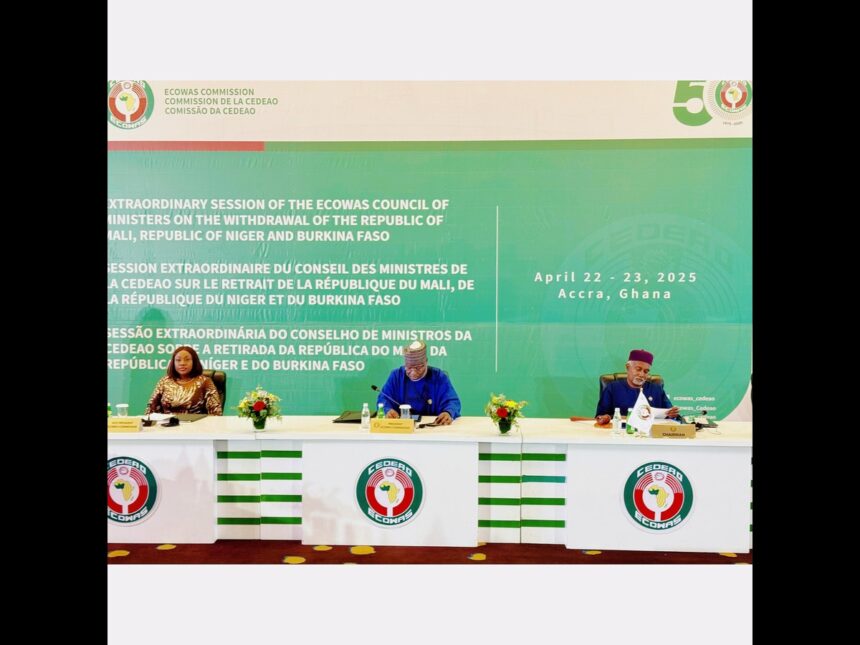The Economic Community of West African States (ECOWAS) Council of Ministers convened an Extraordinary Session in Accra to deliberate on contingency plans following the formal notification of withdrawal by Burkina Faso, Mali, and Niger from the regional bloc.
The Extraordinary Session follows a directive from the Authority of Heads of State and Government during its 66th Ordinary Session, mandating the Council to adopt modalities and a contingency plan for the disengagement of the three Sahelian nations.
In his opening address, the Chair of the Council, Nigeria’s Minister of Foreign Affairs Amb Yusuf Maitama Tuggar, noted that the gathering demonstrates ECOWAS’s unwavering commitment to the advancement of the regional community and the fulfilment of ECOWAS’s core purpose.
While speaking further, Tuggar extended the appreciation of member states to the Government and people of Ghana for their warm hospitality and for hosting the critical session.
He also congratulated Ghana and the ECOWAS Commission on the successful launch of the “ECOWAS at 50” celebrations, describing the commemorative activities as a timely reflection of the bloc’s achievements and aspirations.
The ECOWAS Commission is expected to present memoranda addressing the withdrawal process, suspension of programs in the affected countries, and challenges related to the free movement of people, goods, and services.
Additionally, the Council will examine the potential relocation of ECOWAS institutions and agencies currently based in Burkina Faso, Mali, and Niger, with an eye toward mitigating any disruptions caused by their exit.
In a solemn tone, the Chair acknowledged that the session marked a difficult moment in ECOWAS’s history.
“It was never our wish to deliberate on the withdrawal of member states. But in recognizing the sovereignty of these nations under their current military governments, we must now adapt and chart a forward-looking path,” he said.
Despite the gravity of the situation, the Tuggar urged ministers to view the crisis as an opportunity for institutional renewal and a recommitment to regional integration.
He emphasized that ECOWAS remains the most integrated regional bloc in Africa, underpinned by harmonized policies and a shared vision for political, economic, and security cooperation.
“As we look ahead, our responsibility is to maintain the ECOWAS legacy and pass it on stronger to the next generation. Our unity has been tested before—and we emerged stronger. We will do so again,” he declared.
The Chair called on his colleagues to engage in constructive deliberations and to ensure the effective implementation of the withdrawal, reaffirming that ECOWAS remains the premier platform for addressing West Africa’s collective challenges as he pointed out that membership as the saying goes, has its privileges.
READ MORE FROM: NIGERIAN TRIBUNE






